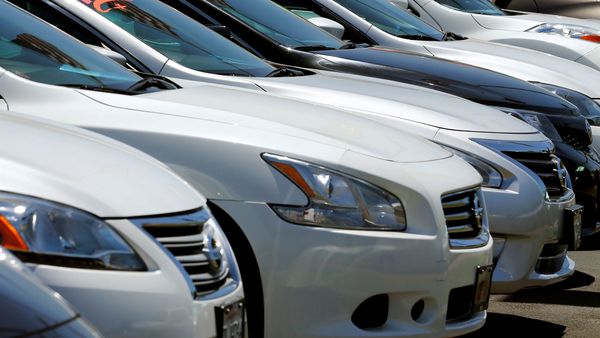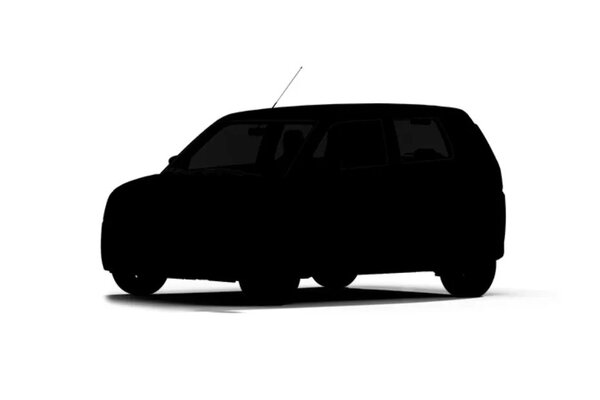Coronavirus: Biggest factory shutdown since World War II hits U.S., Europe
- Automakers in the U.S. and Europe are idling plants in response to the coronavirus crisis.


The economic impact of the growing coronavirus outbreak is shifting from service-driven industries like hotels and restaurants to the manufacturing sector on both sides of the Atlantic, leading to a synchronized shutdown of heavy industry that historians and industry experts say is unlike any seen since the 1940s.
Automakers in the U.S. and Europe are idling plants in response to the crisis, echoing the industrial shutdown in China that reverberated through global supply chains earlier this year and adding to the case that a global recession may already be under way.
Also check these Vehicles
It also may justify President Donald Trump’s declaration Wednesday that he has become a “wartime president" leading the fight against an “invisible enemy" in the virus.
Among Trump’s moves was his authorization of powers under the Defense Production Act, which was established at the time of the Korean War to allow the government to direct industrial capacity. Larry Kudlow, his top economic adviser, later told Fox News that the administration was already in discussions with General Motors Co. and other automakers to start producing ventilators vital to treating people affected by the virus.
Industrial Transformation
Such a move to retool and shift production dramatically would echo the industrial transformation seen in the 1940s as factories moved from producing consumer goods like cars to turning out tanks and guns for the war effort on both sides of the Atlantic.
But since then, experts couldn’t recall a similar synchronized shutdown in such a huge portion of the global auto industry. The closures in Europe and the U.S. announced this week follow hits the industry has taken in other big producing nations like China, Japan and South Korea.
“I don’t know that there is an analog in recent history. World War II might be the best analogy," said Kristin Dziczek, head of research at the Center for Automotive Research in Ann Arbor, Michigan. “Every automaker? Every region in the world? I don’t think that has ever happened."
Better Parallel
Timothy Guinnane, an economic historian at Yale University, argues the better parallel may be with what came after the end of the war in 1945, specifically with post-war Germany, “where the whole country came to a halt for a few months."
Guinnane argues the shutdown now under way in Europe and the U.S. follows an encouraging example in China where life has started to return to normal after a six-week closure. Plus, he said, it’s not clear -- yet -- that there will be longer-lasting damage to the U.S. economy.
“If you waved a hand and got rid of the virus tomorrow we’d be back to normal in a week," Guinnane said. “So it’s not like a war."
That may be the hopeful view. JPMorgan Chase & Co. economists titled a note to clients about the global slowdown “The day the earth stood still."
“There is no longer doubt that the longest global expansion on record will end this quarter," they wrote.
Dziczek says a week of lost auto sales in the U.S. alone is equivalent to losing 94,400 jobs, $7.3 billion in personal income and $2 billion in tax revenue.
The damage to the auto sector this time will depend on how long the shutdowns last. But the auto sector around the world, Dziczek says, is in far better shape than it was in 2008 -- when the global financial crisis led to government bailouts and a grinding crisis that saw mass layoffs and the permanent closure of many plants.
Trade Wars
The shutdowns this time, however, are also coming after a bad 2019 for manufacturers around the globe. Many were battered by the impact of Trump’s trade wars and tariffs on supply chains and a slump in business investment. Europe’s industrial giant, Germany, was teetering on the edge of recession before the coronavirus crisis hit. U.S. manufacturers saw their production contract by 0.2% in 2019.The path forward looks grimmer still. China’s manufacturing output fell 15.7% in January and February from a year earlier, according to official data earlier this week. The result is that China is now expected to record its slowest growth since 1976, the year Mao Zedong died and the Cultural Revolution ended.
In Germany, car companies are expected to shut down for about two weeks, leading to a significant dislocation in workers. Volkswagen AG is Europe’s largest industrial company and employs about 475,000 people on the Continent.
In the U.S. the closures have spread beyond the Detroit three with Hyundai Motor Co., Honda Motor Co. and Toyota Motor Corp. announcing temporary closings Wednesday, while VW had already shuttered its Chattanooga, Tennessee, plant.
Supplier Networks
Also affected are carmakers’ vast supplier networks, already shaky as a result of the shutdown in China. Ford had been forced to shut a plant in Chicago because a seating supplier halted output to clean after a worker tested positive for the virus. At a Mercedes-Benz plant in Alabama, managers have warned that the shutdown in Europe may force production to stop soon because of a lack of parts.
The impetus for the auto plant closures in the U.S. isn’t entirely economic. They came after Detroit automakers capitulated to worker demands to shutter factories because of concerns on the factory floor about the spread of the virus.
GM, Ford Motor Co. and Fiat Chrysler Automobiles NV all said Wednesday they would halt production through the end of March to sanitize plants and adjust to a dropoff in auto sales.
Automakers had been trying to work out a compromise with union leaders that would allow them to keep production lines running by stepping up cleaning and staggering shifts to put workers at a greater distance from each other. But that became more difficult as cases of the virus began to appear in plants.
‘Scared, Frustrated’
Two Fiat Chrysler workers -- one at a transmission plant in Indiana and another at a truck plant in Michigan -- had tested positive for the virus as of Wednesday, while Ford confirmed two cases among its U.S. workforce and GM has one.
“Our members are scared, frustrated, and there is panic amongst them," LaShawn English, president of UAW Local 1264, which represents Fiat workers at a Michigan stamping plant, wrote in a letter Tuesday to CEO Mike Manley. “We are pleading that you make a stance today and temporarily halt production."
Still, like other workers now confronting changed circumstances, many autoworkers are also displaying plenty of forbearance.
“There’s no bad guy here. This is unchartered territory for all of us," said Bruce Baumhower, president of UAW Local 12 in Toledo, Ohio, which represents workers at a plant producing the Jeep Wrangler SUV. “If things deteriorate more over the next two weeks, we’ll just need more time off. We just can’t put our people in that kind of environment. The jobs are tough enough to do and fully concentrate on without worrying about staying alive."








 40 kWh
40 kWh 150 Km
150 Km



 998 cc
998 cc Petrol
Petrol











